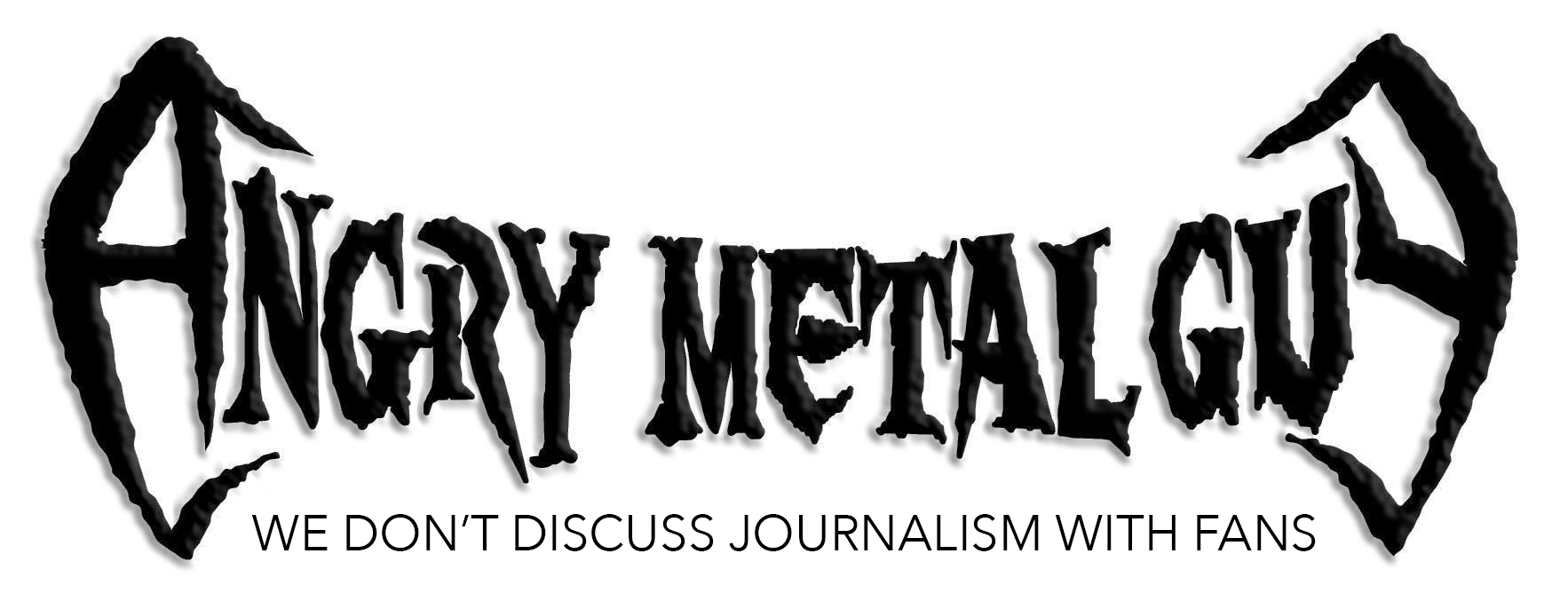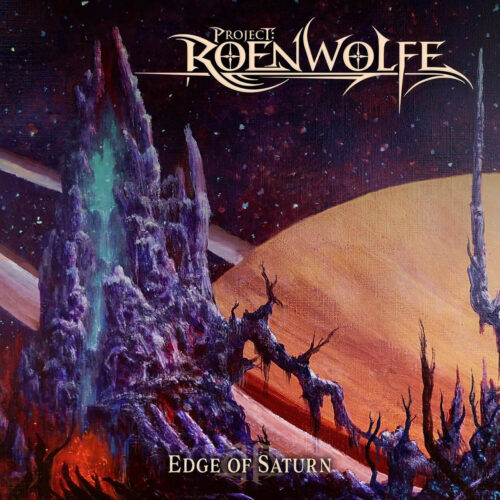
On a video call from Tucson, with her playful dog Kansas and a huge Visigoth poster in the background, Alicia Cordisco filled me in on what she’s been up to. A prolific metal guitarist and occasionally, singer, with plenty to say, she’s a joy to interview, speaking extemporaneously on her community within the metal scene, the joys of Manilla Road (“they’re the greatest band ever and I will accept no other option”), and the challenges of coming out and of living as a trans woman. We covered too much ground over an hour to fully reproduce here (and my questions were embarrassingly inarticulate), so the interview below is mostly in Alicia’s own words, pulled from our conversation and then lightly edited for clarity and flow. I’ll let her introduce herself.
“I’m a 32 year old transgender woman and I’ve been playing heavy metal… oh goodness… 20 years now. I started playing thrash and punk when I was a little kid – 13 years old. Probably my best known work is with a power metal band called Judicator that I was in for almost a decade. I started in my early 20s and released 5 records, the most recent of which was on Prosthetic. I did end up leaving that band slightly over 2 years ago and these days I’m doing at least 3 projects right now. I’m in a funeral doom band called Wraithstorm, a very angry, very, hah, very queer thrash band called Transgressive. Probably the most high-profile of the three right now is called Project: Roenwolfe, a band I actually started before I was in Judicator but was broken up for a long time and recently reformed.”
Power metal is Alicia’s bread and butter, and she was drawn to it from a young age, drawn by both the music and the sense that people who loved metal would accept her.
“There’s a reason that so many women, so many queer people, so many of different groups of marginalized people are drawn to metal. I like to think of heavy metal as a subculture that very much embraces the DIY perspective of being a lower-class musician. We don’t have the fancy tools of rich millionaire musicians. People just went out there and made DIY labels and fucking hand-drew flyers and copied tapes and did what they had to do and it was rooted very much in punk. But there’s a reason that that sense of being othered by mainstream society reflects that sense of being accepted in metal, and for me, that was what initially drew me to the genre. I always felt that there was this sense of wrongness in how I was in the world. For a long time I blew it off as pomp and ego – which I guess it is to a point – but there was more to it – my queerness. And those messages and that kind of ‘ragtag group of outcasts that will accept you’ mentality really appealed to that part of me.
It was disappointing to get older and find that some of that sentiment was false. Some of it was just people play-acting, some of it was to sell records, a lot of it is to chase clout. But a lot of it is genuine. Especially on the more underground level, a lot of it is genuine. And for me pre-figuring my queerness out, music, and particularly heavy metal music, was the language I used to speak to the part of me that I didn’t know how to explain yet.”
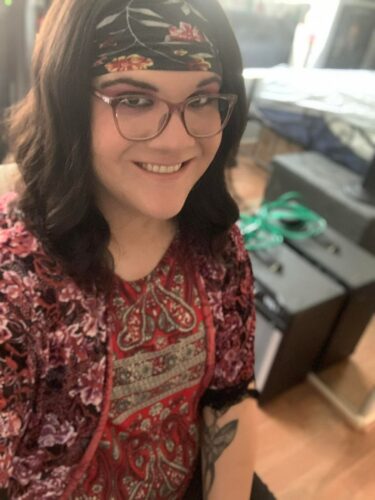
“The thing that really appealed to me in power metal was the escapism,” says Alicia, “And it’s the same reason I like fantasy. Because yes, it may not be directly political or directly allegorical, but the cool thing about power metal is that it explores those themes of being in a situation or world or society where there is some kind of evil or corrupted power that feels unconquerable or all-encompassing, and it gives you a safe place to explore what it would be like to overcome that. I really love that empowerment because it’s often not true in the real world. We often feel, or at least I often feel, hopeless as an individual. I sometimes feel there’s nothing I can do and what I do doesn’t matter. But the cool thing about power metal is, even in non-specific messages. Even if I’m listening to Dragonforce or something, which is really vague in what it’s talking about. It hits on those themes in such an easily consumed way that it’s just very empowering and pleasant to listen to; it’s motivational. It’s a pick me up, honestly. It’s a way to explore those things in a way that makes you feel better. It’s like the audio equivalent of watching Lord of the Rings or reading Lord of the Rings. That sense of “we can do the thing and little, insignificant people matter, too.”
When asked about her musical influences, Alicia goes straight after the AMG favorites; “If we just talk to my tastes,” she says, “my current favorite band is Manilla Road and they’re the greatest band ever and I will accept no other option. You know, I heard of them a long time ago but they never really clicked for me until a couple of years ago but once I really got into it and I was like ‘Oh, these 17 albums plus the 2 Hell Well albums plus Mark’s solo album, this is the greatest discovery I have ever heard. Please inject this into my veins every single day.’” In the same vein of pandering to AMG management, Alicia Outed herself as a huge Opeth fan – perhaps unsurprising for listeners of Project: Roenwolfe.
“I found them as a wee little babe: around when damnation came out. I’ve just always appreciated Mikael Åkerfeldt’s chord theory and the way he can construct layers and compose songs, too, and keep them interesting. Definitely a huge, huge influence for me.”
As if that weren’t a compelling enough endorsement of her refined tastes, Alicia traces her aggressive riffing style back to Danish thrashers Artillery.
“The number one influence on my playing is a record I have hanging right there in front of me, and that’s By Inheritance by Artillery. I worship at the feet of By Inheritance. That is my fucking Bible. I love all other Artillery too, but that album changed my entire outlook on guitar playing, from how just completely off the wall the rhythm playing is to the melodic construction of all the riffs, all the counterpoint in it and how the melodies interact, and then the insane vocals on top of it. That definitely runs through Project: Roenwolfe the most. All the tight picking interlaced with the little, you know, legato leads and things like that in my playing, that’s like 100% just me really liking By Inheritance.”
When I ask her about her current thrash band, Transgressive, with former Judicator Guitarist Josh Payne and Leona Hayward of Skelator and Northern Crown, Alicia smiles.
“We’re a bunch of commie trans women” she says, “And we want music that is made by and for that crowd and also related crowds that represent our friends and our families.”
“Well, our lead guitar player (Josh Payne) – he’s not a commie trans woman but he’s a dear and we love him.”
Transgressive is just one of the vehicles by which Alicia and a growing community of trans, nonbinary, and queer metal musicians are making a space for themselves using the music they love.
“One thing that me and Leona were talking about is; when we think about queer metal or female metal or transgender metal we don’t really have a lot of examples. There are certainly queer, female, and transgender artists that play metal, but there aren’t a whole hell of a lot of songs that we were aware of that speak specifically to those experiences. We honestly can only think of one metal song offhand that’s by a popular artist that is even about LGBT rights and it’s that Kreator song (“Side by Side” from Gods of Violence) – which is a great song. Something needs to be outspokenly about these things because that’s what heavy metal is a lot of the time. It’s outspokenly about whoever is playing it. Whether it’s about D&D or Ronald Reagan (or if you like Blind Guardian, that’s on the same album). So we wanted to really make something that nailed down that specifically, from the name, to the album art, the execution, even the very nature of how the band is operated.
It’s a charity project, it’s completely grassroots; all proceeds are going to funding abortion funds. Last year we raised about $500 off a 2-song EP and right now we’re working on another EP and an album. You’ll have to pay for them, but all the money goes to that charity as well. All the lyrics are very angry, some of it is satire, some of it is definitely not, but it should be a good time and I’m sure it will make a lot of people a little cross with me, but that’s part of the job.”
That element of provocation sets Transgressive apart from much of Alicia’s other work, but it fits nicely within the community of artists she’s part of.
“It’s kind of funny; we mentioned like, if you’re a trans woman in the metal scene, you probably know all the other trans women in the metal scene, and you know all the trans men, and you know all the nonbinary people. While it’s not explicitly true, it’s true enough.”
“If you went back in time to about 2011 you would see me, Lux (Edwards, of Soulmass and in Wraithstorm with Alicia), Lorelai (Laffey, of Steamforged and keyboardist for several Judicator and Project:Roenwolfe releases), and several other people that have been in associated projects, and you’d probably see a whole lot of straight dudes. Fast-forward ten years later, we probably put out two, three dozen albums between myself, the aforementioned friends and our extended social circles, and so many of us have come out as trans, as queer, as bi, as ace, as demi; you name it. It’s kind of funny, because we didn’t do that on purpose. We all sort of somehow found each other. Back in the day we had this community called Masters of Metal Productions, which was just a bunch of these straight dudes making metal together and now it’s a lot of the same people that we go to for help on our different projects, but we’re all different brands of queer. It’s cool that we have that friendship and that safety and that community through music. To safely come out and explore those things. I don’t know if I would have been able to feel that safety and that sense of connection to come out without those friendships and without those partnerships, or feel the ability to continue to make music without those partnerships, without those friendships. When you see one person doing it, that gives you the thought; I can do this too. And even if every other person leaves me at least I’ve got them.
I was probably one of the late bloomers in my circle, honestly. Around 2015 some of my friends started to come out. Other musicians. I knew a few who were closeted and just gradually, over the years, one by one, into the dozens, that started to happen. The notion that we’ve all gotten to with this is – and I know a lot of my friends in my queer circle would agree – it’s not about trying to take out the bigoted or problematic parts of the metal scene and making it a space for queer people or a space for trans people. It’s about making our own scene. At the end of the day we have to protect us and we have to define our own boundaries and we have to define our own scene. Fortunately, metal is an expansive and creative enough medium that you can do that within it and people will generally accept that. If you run into people who won’t, you can make your own space and your own scene away from that. We really focus on cultivating our own spaces, cultivating our own craft, cultivating our own music, and if other people want to be a part of that, cool. If other existing systems, people want to be a part of that, awesome. If they don’t: fuck ‘em. We’ll do it anyway.”
While coming out among that scene was a largely positive experience, Alicia has still encountered much of the same discrimination and many of the same hardships that are unfortunately inherent in the trans experience in America.
“Coming out was very hard. I, unfortunately, lost most of my extended family in doing so. My immediate family have been supportive even though they come from a very different background and it hasn’t been the easiest for them or for me, but they are supportive. I definitely lost a decent amount of friends both in the metal scene and in my personal life from coming out. Not even necessarily from them being actively bigoted but when you’re the first trans person somebody knows there can be a lot of tension and a lot of things can go wrong. And unfortunately, some of those things are irrecoverable.
I was pushed out of one job when I came out. It was very clear they saw my transition as a disturbance to them. I did leave that job before anything happened but they made it very clear what their intentions were and I was in a state with no employment protections so I didn’t have a lot of recourse. I had to relocate and had a very uncertain 6 months or so where my immediate future was definitely not guaranteed
From a social standpoint – I don’t want to get too into the nitty-gritty details – but definitely, there are some complications and some unpleasantness when it comes to like socializing and certainly dating or even just going out in public. I don’t live in the best area. It’s very much Trump country out where I’m at and as somebody who definitely does not pass in cis society, I stick out like a sore thumb in public. I don’t mind it from a personal standpoint, but it definitely has led to some not-so-fun situations for me. Nobody has physically gotten into an altercation with me or anything like that, but there has been harassment, unpleasantness, and it has made me very careful about my choice of job – I work from home now and I’m not advocating violence—merely being ready for the kind of violence we unfortunately face, and my choice of friends and my willingness to meet strangers and to go places alone, that sort of thing. That’s a very different dynamic, even for somebody who is traditionally a homebody.
There’s a whole other layer of tension and anxiety, whereas being online it’s fairly easy to slide into a community that is accepting and you know you won’t have much problem. You can run around metal twitter all day and you know everyone is really friendly and really polite and you know you won’t get into much trouble. Whereas if I want to go to a bar on a Saturday night, I need to have a safety plan in place.”
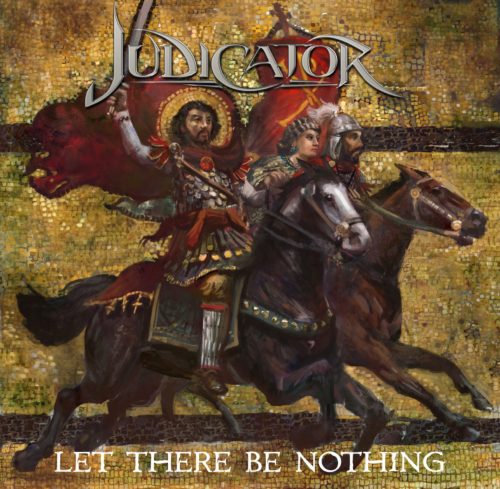
That safety plan means many things to Alicia. When I ask her for advice for people coming out, she stresses physical safety first and foremost.
“Honest to God my first advice is if you don’t know how to handle a weapon and you’re not armed you need to be. As a queer person in this country you should understand self-defense and you should understand the 2nd Amendment and you should understand everything there is to know about that. And I’m not advocating violence: merely being ready for the kind of violence we unfortunately face. Times are getting worse, tensions are rising. The last two years have been the most dangerous to be a trans person. Prepare yourself to be able to handle yourself.
That is of course if you have the ability to. And it’s OK if you don’t, and it’s OK if that doesn’t appeal to you. If it doesn’t, my other advice – and I follow this more – I’m not a fighter to be honest. I do what I can to keep myself safe but at the end of the day, I know my limits. So when it comes to the second bit of advice, it comes to communal safety. Have a plan, know the places you’re going to know the people you’re going with. Have accountability. If you’re going on a date with a stranger, make sure a friend knows, have a friend drop you off. If you’re going to a bar, don’t go by yourself.
Research places, especially when it comes to your medical care. Medical care is the place where you are going to encounter the most bigotry on an interpersonal level and there are resources online to find places that are safe. I know in Arizona El Rio Health Community is a very safe place to seek treatment. Planned parenthood is a very safe place to seek treatment. Know that those places are going to be good to you and make an effort to find them. People have been to them before, there are tons of discussions online. Vette everything you do so that you’re not surprised or caught off guard. It won’t prepare you completely but there’s never too much safeguarding when it comes to your own health and your own life.”
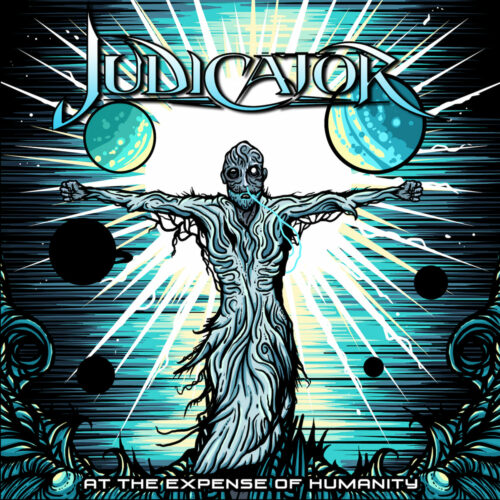
As for safeguarding the health and life of others, Alicia returns to community commitment. When I ask about her advice for allies, she stresses action.
“I don’t want allies, I want accomplices.”
“If you’re going to be an ally you have to be actively involved. That means not just educating yourself and ideologically accepting someone, that means being able to put the work in to changing your behavior and how you treat someone. That applies to race, gender, sexuality, ability, neurodivergence, everything. You have to respect people as the people they are.
It’s not about blending them into your life. That’s a good place to start but you also have to adjust your behavior. So it means not setting your friends up for failure or harm; if you are going to introduce them to one of your friends, make sure you know the person you’re introducing them to. You can’t introduce a queer friend the same way you would introduce a straight friend in your life. If you have family you’re going to be around, make sure you understand how that’s going to go. Have a conversation beforehand. Don’t put the onus on the queer person in your life to have to navigate the bigotry of people you don’t know. It’s your job to be the intermediary. It’s your job to educate. it’s your job to defend. You need to do the work to make sure those people are safe.
The thing that has been hardest for me to deal with is the apathy of moderates and how much they enable. I realize at this point in my life as a younger person I was one of those people. When I was a young teacher in my early 20s… if I encountered that person today I would be arguing with them in minutes. Because it’s really the moderate, the neoliberal if you will, that I have found does the most harm in my communities, does the most harm in my personal life, and does the most harm on a political scale.
I know somebody who wants to hurt me looks like. I can see them coming a mile away and I know to stay away from them. What I don’t know how to navigate is people who will pull the rug out from under you when you need them the most. The most harm I see is done by those people and those are the people and those are the people who are not held accountable; there is no cancel culture for these people. They don’t do anything that’s obvious enough for the conventional person for them to care. And that’s really the group that makes people feel outed; that makes people feel hated; that makes people feel othered. You know? We all know Nazis are bad. We don’t like them. Of course; that’s easy. What about your guy friend who says he is all these great things and then behind the scenes you know that he is hurting women in his personal life? Or hangs out with people who are dangerous to you and when you call them out on that they don’t care because ‘Oh, well, I’m not a Nazi so I’m fine’ or ‘I know the right things, I say the right things, I can pass the right way.’
That has been the hardest to deal with; that loss of faith in people who Ideologically I would have thought had been better, but when it appeared I was a bisexual cis man before I came out, I was never in a situation where that had to be tested and I couldn’t see that happening to other people because I took it on faith that they were OK and that was my own moderate-ness. It was my own moderate viewpoint clouding me to that. And now those are the people I stay away from but they are hard to spot and it’s usually when they start doing harm.”
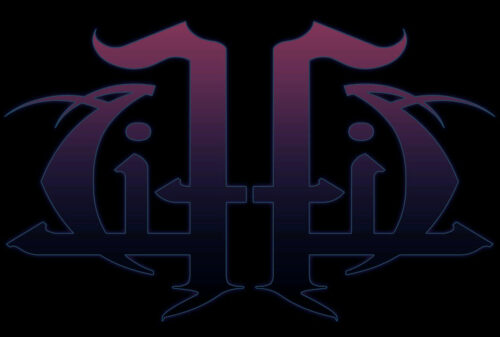
When I asked Alicia about playing live, she was hopeful that it could happen again, but emphasized that it would be a challenge. First off, she wants a stage vocalist.
“[Vocals are] just not that fun for me. I have to stand in front of this mic the whole time and play and sing at the same time. I will gladly delegate that out.”
With current bandmates scattered around the country, getting everything together to play a Transgressive or Project: Roenwolfe show is logistically tricky, and Alicia is more selective now about where she wants to be.
“There are certain spaces in the metal community that I previously frequented or have been invited to, and I’m not going to name names – that’s not what I’m here to do – but that’s definitely where you run into a block because those spaces are not cultivated towards being inclusive spaces, being diverse spaces. Their concern is to make money their concern is to hustle to grind, it’s not about art, it’s not about heavy metal, it’s certainly not about inclusivity or protecting people, and some of them may wear the patches and play in the bands and they’ll bleat this all day that it’s about individuality, it’s about making a metal space for us to be empowered in. At the end of the day we’ve run into so many situations – and I know I have personally, where there will be a genuinely harmful person or harmful band and you’ll call them out or you will attempt to talk to a promoter about it and they don’t give a shit.”
“I like to think of John Finberg as a great example. We knew that dude was trash decades ago. So many people knew he was trash in the ‘90s, and it took how long to take that guy out. How many people covered him, how many people enabled him? How many people are out there that just chimed in at the right time?
The first local show that I went to when I was 15, someone was murdered in a knife fight with white supremacists in the parking lot. That always stayed with me. It’s not every show, that’s not all the time, but that shit happens. Not every bigot you run into in metal is going to stab you to death in the parking lot, but that danger is real. When people are complicit in a culture that creates that and make no effort to distance themselves from that violence at all, is that really the scene we want to be part of?”
Alicia knows what scene she does want to be a part of, and it’s right where she is. At the end of the day, she’s more comfortable making metal and living in her own skin than before she began transitioning.
“There are aspects to transitioning that suck. There are aspects to being a transgender person in modern society that suck but none of it has to do with being transgender itself. All of it is external factors. It’s all in the way that people treat you. It’s all in the way that society treats you and I would rather authentically be hated to be quite frank than to suffer in silence to a world that doesn’t care. Anything I experienced pre-transition was much worse because even on my worst day now I know that I see the world and myself in the way I am meant to and I appreciate the extra layer of perspective that I have been given. I know that I’m a better person, I’m a better friend, I’m a better ally as a helper to other people than I was previously. I would not trade that. And external things can change.”
If you’re not already in Alicia’s circles, or familiar with a lot of trans artists, you can start to change those external things by just opening you ears to the people involved. You’re probably already familiar with some of the work of queer, trans and gender-nonconforming musicians lauded here at Angry Metal Guy; power metal from Dialith, death-doom from Soulmass, doom from Miasma Theory, and experimental drone-doom from Vile Creature. Alicia also points to Klaymore‘s heavy metal and black metal from Rage of Devils – on the grindy, nasty side, Kronos recommends Cretin and SeeYouSpaceCowboy.
“For people in heavy metal that are maybe curious about queer artists and trans artists; if you see it, try to uplift it. If you don’t like it musically, that’s fine. Don’t uplift it unless you really think the quality is there; keep your standards. But if you find an artist that you’re really passionate about, chances are they need some spotlight on them. Champion them. One way to get artists noticed, especially when people who maybe previously weren’t as known for making it, is just to be that first follower. If the band is the leader, you as the first follower are going to be the one who gets other people into it. When they see other metal fans appreciating it, maybe it doesn’t seem like ‘Well, this band that is a bunch of trans people and queer people singing about trans and queer things, that’s not for me.’ But when they see other metalheads enjoying it, maybe they think – ‘Maybe this is for everyone. Maybe I can start appreciating it for what it is.’”
And if you’re a trans drummer, get in touch with Alicia.
“We’re really trying at some point to make an all-trans band but we realize that we don’t know any trans drummers, so we’re going to have to bully one of our guitar player friends into learning the drums, which Leona and I joke is how a lot of drummers come to be.”
